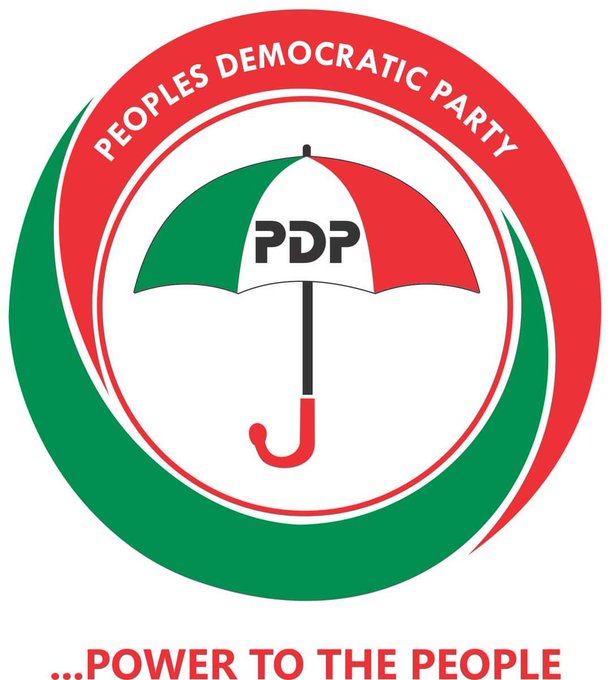The Peoples Democratic Party (PDP) is grappling with a mounting leadership crisis that threatens to fracture the opposition party’s already shaky foundation. The dispute over the position of National Secretary, sparked by a ruling from the Court of Appeal, has pitted the party’s current officeholder, Samuel Anyanwu, against Ude Okoye Ude, who has been declared the legitimate holder of the office by the court.
The ruling, handed down last week by the Court of Appeal in Enugu, affirmed that Anyanwu’s hold on the National Secretary role was unconstitutional. The court found that Anyanwu, after running for governor of Imo State in the 2023 elections, had violated the PDP’s internal rules by retaining the position. The judgement not only invalidated Anyanwu’s continued occupation of the office but also formally recognized Okoye as the rightful National Secretary.
Justice Ridwan Abdullahi, in delivering the lead judgement, ruled that Anyanwu’s appeal against the lower court’s decision lacked merit. He ordered the immediate implementation of the ruling, urging that Okoye take over the role within 24 hours. However, Anyanwu has remained defiant, insisting that he will not vacate the office until the Supreme Court delivers a final verdict on his case.
“I remain the legitimate National Secretary of the PDP until the highest court in the land says otherwise,” Anyanwu said in a statement following the Appeal Court ruling.
This ongoing saga has placed the PDP at a critical juncture, with the opposition party’s internal cohesion now hanging in the balance. As preparations for the party’s national convention ramp up, concerns are growing about the legitimacy of the event if the leadership dispute is unresolved. The convention, scheduled to elect a new National Chairman and discuss the party’s presidential candidate for the 2027 elections, could face a legal challenge if Anyanwu remains in office.
Okoye, emboldened by the court ruling, has strongly condemned Anyanwu’s refusal to comply. “If Anyanwu continues to occupy this position and oversees the national convention, any decision made could be invalidated in a court of law,” Okoye warned in a press briefing in Abuja. “This isn’t just a personal matter; it’s a matter of the PDP’s survival. We cannot ignore the rule of law.”
For the PDP, which has been struggling to reassert itself as a formidable opposition force after losing the 2023 elections, the leadership row could not have come at a worse time. The party’s credibility is on the line, and the situation is further complicated by the looming Supreme Court appeal. Party sources have expressed concern that the ongoing turmoil could erode public confidence in the PDP, just as it prepares for what could be a make-or-break convention.
“This crisis is deeply concerning for the PDP’s future,” one senior party official, who spoke on the condition of anonymity, said. “We are already facing a battle to regain our position as Nigeria’s leading opposition party. Internal squabbles like this are exactly what we cannot afford right now.”
The Court of Appeal ruling has brought the longstanding tensions between the two factions of the party to the forefront. The dispute is not merely about a leadership position; it is emblematic of deeper divides within the PDP. Anyanwu’s supporters argue that the ruling is politically motivated and that his removal from office would further destabilize the party. They contend that Anyanwu’s candidacy for governor should not disqualify him from holding the National Secretary role, a point that Anyanwu himself continues to make in interviews and public statements.
Meanwhile, Okoye’s camp has seized on the ruling as a victory for the rule of law and party discipline. “This is not a personal fight,” Okoye stated. “The court’s decision is clear, and I am simply here to ensure that the party follows the correct procedures and respects its own constitution.”
Party insiders are particularly concerned about the implications for the upcoming convention. “If this dispute is not resolved soon, the convention could be overshadowed by legal challenges,” said another party member. “It could seriously undermine the party’s ability to function effectively and present a united front in the 2027 elections.”
As tensions continue to rise, the PDP’s National Working Committee (NWC) has remained largely silent on the matter, despite growing pressure to intervene. The NWC had earlier promised to manage internal conflicts and restore unity within the party, but its inaction on the issue has drawn sharp criticism from both sides of the divide.
One senior NWC member expressed frustration with the party’s leadership vacuum. “We need a decisive response from the NWC,” the member said. “This is a crisis of leadership that could destroy the party if not handled carefully. We cannot afford to let this linger.”
The leadership crisis is further exacerbated by the political climate in Nigeria, where the ruling All Progressives Congress (APC) is increasingly consolidating its power. As the APC continues to strengthen its position, the PDP faces mounting pressure to present a credible challenge in 2027. This dispute over the National Secretary position only adds to the party’s woes, making it more difficult for the PDP to project itself as a unified force.
“If the PDP cannot resolve its internal issues, how can it effectively challenge the APC in the next general elections?” asked political analyst Chijioke Okoro. “The PDP needs to get its house in order and quickly. Otherwise, it risks becoming irrelevant.”
The stakes could not be higher for the PDP. With the Supreme Court set to hear Anyanwu’s appeal, the party’s future will depend largely on how it navigates this leadership crisis. Ude, for his part, remains resolute, calling for unity within the party despite the ongoing dispute.
“This is a defining moment for the PDP,” Ude emphasized. “We must prioritize the party’s collective interests and respect the court’s ruling. Anything less would be a betrayal of the party and its supporters.”

